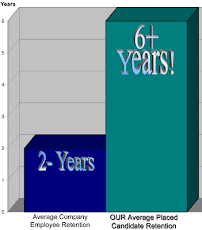Friday
Survey finds economists optimistic on hiring rate
We are see more and more reports of optimism in the business world lately.
WASHINGTON —Employers will hire more workers this year, and the economy will grow faster than envisioned three months ago, according to an Associated Press survey that found growing optimism among leading economists.
But unemployment will stay chronically high — nearly 9 percent by year's end, the latest quarterly AP Economy Survey shows. A majority of economists say it will be 2016 or later before unemployment drops to a historically normal rate of around 5 percent.
Economists have become more confident 19 months after the worst recession since the Great Depression ended. Lower Social Security taxes and higher stock prices will embolden Americans to spend more and help power the economy, they say.
'People will finally recognize that an economic recovery is under way,' said Lynn Reaser, a board member of the National Association for Business Economics. 'This won't be a recovery seen only by economists.'
The gains this year will be enough to withstand the threats still clouding the economy, the AP survey found. A majority of the economists doubt, for example, that falling home prices and higher mortgage rates will pose a major risk to the economy in 2011.
The AP survey collected the views of 42 private, corporate and academic economists on a range of indicators. Among their forecasts:
The economy will grow 3.2 percent this year, compared with the 2.7 percent they forecast in October; employers will create a net total of 2.2 million jobs; consumers will spend 3.2 percent more this year than last year; inflation will be 1.8 percent this year, barely more than the 1.7 percent the economists forecast previously.
Among the reasons for the economists' growing optimism: an extension of income-tax cuts, a cut in Social Security taxes for workers, easier access to loans, higher stock prices and a government that seems more sympathetic to the priorities of businesses
WASHINGTON —Employers will hire more workers this year, and the economy will grow faster than envisioned three months ago, according to an Associated Press survey that found growing optimism among leading economists.
But unemployment will stay chronically high — nearly 9 percent by year's end, the latest quarterly AP Economy Survey shows. A majority of economists say it will be 2016 or later before unemployment drops to a historically normal rate of around 5 percent.
Economists have become more confident 19 months after the worst recession since the Great Depression ended. Lower Social Security taxes and higher stock prices will embolden Americans to spend more and help power the economy, they say.
'People will finally recognize that an economic recovery is under way,' said Lynn Reaser, a board member of the National Association for Business Economics. 'This won't be a recovery seen only by economists.'
The gains this year will be enough to withstand the threats still clouding the economy, the AP survey found. A majority of the economists doubt, for example, that falling home prices and higher mortgage rates will pose a major risk to the economy in 2011.
The AP survey collected the views of 42 private, corporate and academic economists on a range of indicators. Among their forecasts:
The economy will grow 3.2 percent this year, compared with the 2.7 percent they forecast in October; employers will create a net total of 2.2 million jobs; consumers will spend 3.2 percent more this year than last year; inflation will be 1.8 percent this year, barely more than the 1.7 percent the economists forecast previously.
Among the reasons for the economists' growing optimism: an extension of income-tax cuts, a cut in Social Security taxes for workers, easier access to loans, higher stock prices and a government that seems more sympathetic to the priorities of businesses
The Five Worst Management Concepts in Business.

Geoffrey James published an article last week in BNET which is a good springboard for contemplation and discussion.
See the entire article at http://www.bnet.com/blog/salesmachine/the-5-dumbest-management-concepts-of-all-time/13630?pg=2
Geoffrey highlights some very common sense and sometimes humorous ideas. Although I agree with many of these ideas, I doubt industry will make any fundamental change….companies are too engrained, set in their ways. The larger the company, the more beaurocratic and less likely to make any significant departure from tradition. Below are the five areas Geoffrey James mentions.
#1 Downsizing
“Downsizing is a sign of failure. It means that management has failed and rather than doing the right thing — which is to quit without severance — they’re passing along the penalty for that failure to the people who, in good faith, tried to execute the flawed strategy that top management pursued. That’s why top managers (and the kiss-butt journalists in the mainstream business press) love the word “downsizing.” It makes the results of failure sound like a strategy, rather than a desperate way to remain profitable after top management has made a complete pig’s breakfast of things.”
“… As we go forward [in business] let’s stop calling it downsizing. Let’s call it what it is: firing productive workers because top management was a bunch of overpaid pinhead losers who shouldn’t be allowed to run a company again.”
#2 Leadership
But what is a “leader,” anyway? What does a “leader” do?
“… As we go forward [in business], let’s stop enabling all these tin-pot “leaders” by pretending that they’re doing anything other than grandstanding. Let’s value the real managers, who actually do the hard (and largely thankless) work of making other people productive.”
#3: “Human Resources”
“When you talk to people who work in “Human Resources”, they pretend that they’re all about helping people to become more successful. But the truth is that the entire concept of HR is really just a way to make sure that employees don’t act uppity…. What better way to let people know that they’re expendable commodities than calling them “resources”?
So, as we go forward [in business] let’s stop talking about “human resources” and start calling people what they are: people. People who have real lives and real ideas and real emotions and who, frankly, are doing work that’s often more important than that of the top executives.
#4: “Empowerment”
“it’s abundantly clear that technology isn’t empowering employees; it’s empowering management to spy upon employees. And technology isn’t empowering small organizations; it’s making it easier for large organizations to drive the smaller ones out of business.
So, as we go forward [in business], let’s stop talking about technology as “empowerment” and start talking about what really counts: human creativity freed from the limitations imposed by bonehead “leaders” who think they’re managing “human resources”.
#5: “Business Warfare”
“A glance at the titles of popular business books-Marketing Warfare, Leadership Secrets of Attila the Hun, Guerrilla PR-offer ample testimony for this widely held viewpoint. We’re told that we must imitate generals and warlords if we want to be successful managers…….So, going forward [in business], let’s deep-six the militaristic jingoism and start talking about business in terms of relationships, agreements and profitability. Then we’ll all be better off.
Subscribe to:
Comments (Atom)













